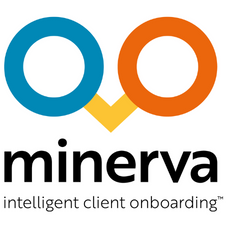Minerva: Do you know your anti-money laundering client checks?
The UK is perceived as a high-risk jurisdiction for money laundering. And that should come as no surprise with the National Crime Agency (NCA) estimating that around £100 billion in illicit funds passes through the UK or British entities each year. And while money laundering is a crime, it is also a key enabler of other serious offences including modern slavery, drugs trafficking, fraud, corruption, and terrorism.
However, despite the toughening of Anti-Money Laundering (AML) legislation earlier this year, the SRA has told firms that they must do more to check precisely where their clients’ money is coming from.
At the regulator’s annual compliance conference in November 2020 (a virtual event due to the restrictions of COVID-19), the SRA reiterated warnings that firms are failing to take anti-money laundering requirements seriously. Speaking at the event, Mark Boyle, policy lead on anti-money laundering for the SRA, stressed that firms must do more than simply check whether clients have a UK bank account. Helena Wood, an associate fellow with the Centre for Financial Crime and Security Studies, also implied that law firms unknowingly permitting money laundering are as significant a threat as those deliberately doing so.
In January 2020, the Fifth Money Laundering Directive (5MALD) came into force with the aim to crack down on money laundering and terrorist financing in the face of emerging and ongoing issues. 5AMLD widened the scope of earlier directives to cover things such as cryptocurrency, digital wallets, prepaid cards, gambling services and certain high-value transactions.
Despite this, the SRA says the number of money-laundering related matters it deals with is increasing. And there are concerns that many law firms are still failing to act upon red flag indicators. In response, the SRA has advised firms to prioritise training for staff as they are ‘arguably the only line of defence against being used for money laundering’. The SRA has also issued a warning that it may ask more information from firms about what they are doing to combat risk in the future.
A risk-based approach
A critical step in ensuring compliance with 5AMLD requirements is for firms to implement a risk-based approach when it comes to identifying, assessing, understanding, and mitigating anti-money laundering threats. This comes after the global money laundering and terrorist financing watchdog FATF (Financial Action Task force) recommended the adoption of a risk-based approach to AML strategies.
Recognising that legal professionals are gatekeepers to the legal and financial system, the FATF has provided guidance which reflects the increasing complexity of AML, as well as acknowledging the new and emerging risks.
Of course, due to the very nature of the services they provide, law firms are attractive to money launderers. This is especially true of firms that do conveyancing work, those responsible for trusts and company structures, and those that handle client money. So, firms must ensure proper due diligence on the people they are doing business with. Not just because of the damage money laundering can inflict on wider society, but also because there are severe consequences for firms that fail to meet their obligations in this area.
How do firms implement a risk-based approach to client checks?
The SRA has provided some handy guidance to help firms carry out the appropriate money laundering controls in line with 5MALD. This includes the need to:
carry out proper due diligence on clients
undertake identity and source of funds checks (where appropriate)
check the circumstances of the proposed transaction.
In addition, the CLC has provided some ‘red flags’ to help spot signs of money laundering. These include clients being evasive about where their money came from, unusual transactions, and where a client has sought to withhold their identity.
Safeguard your client onboarding processes
Today, protecting against risk has never been more critical or more complex. And with firms set to face significant sanctions for non-compliance in the future, help is needed. Especially as verifying clients by manually validating documents can be extremely complex and time-consuming.
With Minerva’s legal onboarding technology, legal firms can ensure compliance with the latest AML in a click, so they can confidently perform due diligence and meet their regulator’s requirements.



